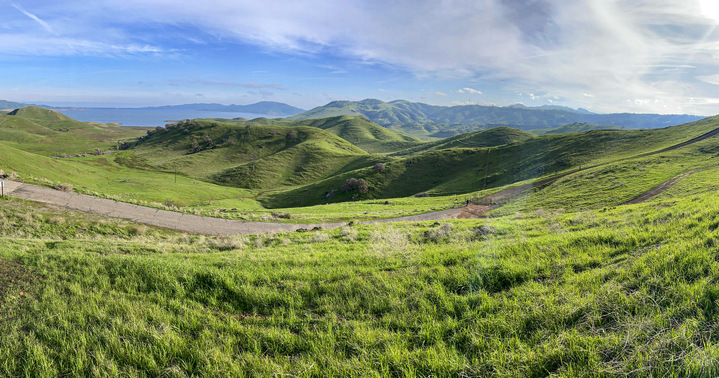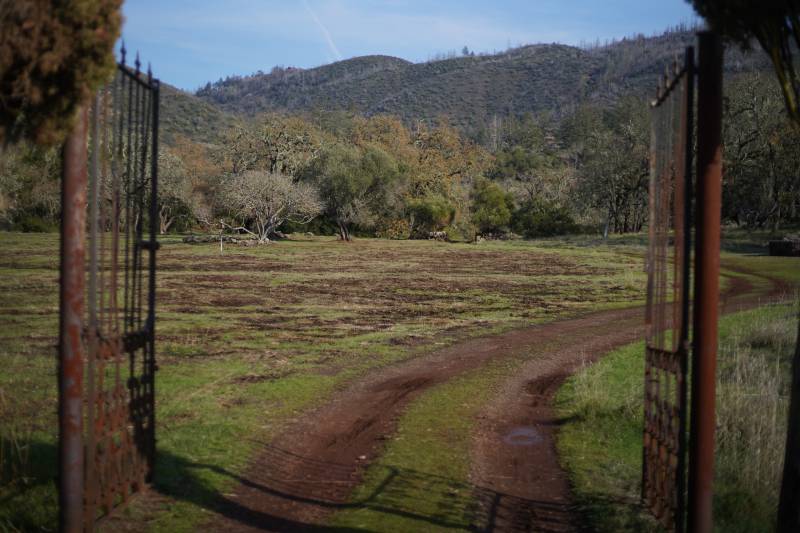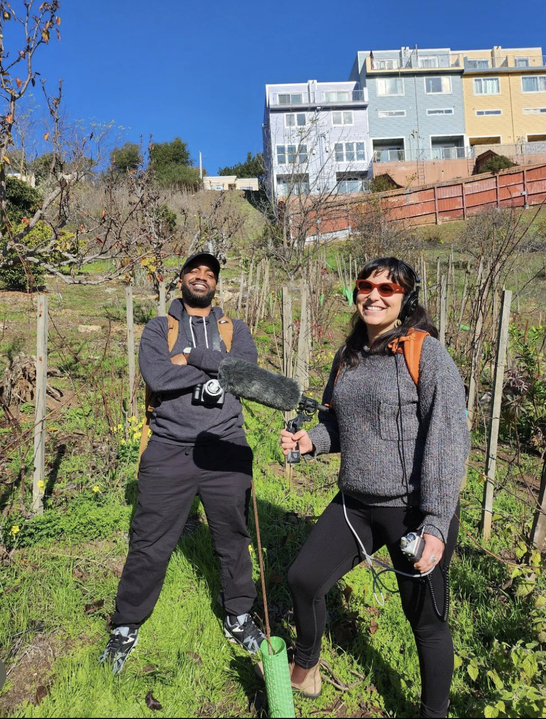Northern California is this beautiful piece of land where high mountains, deep valleys, and cold beaches can bring about a sense of peace. At the same time, the people who live here are constantly debating the land itself.
Homeownership isn’t possible for many of us and as James McMillan III famously said, the rent is too damn high. There are an extraordinary amount of people experiencing homelessness, while this place is home to the highest concentration of billionaires. From wildfires to walkable cities, NIMBYism to high speed rail, there’s a lot to be said about this terrain and the way we (try to) coexist with it.

So over the past five weeks we decided to focus on stories broadly about life and land in Northern California, as a part of our From The Soil series. More specifically, we honed in on what people from communities directly impacted by climate change, polluted soil and the privatization of land are doing to right the wrongs of this piece of earth we call home.
After racking up over 1,000 miles reporting these audio stories, for the final episode in this series, Rightnowish producer Marisol Medina-Cadena and Rightnowish host Pendarvis Harshaw take a minute to sit down and discuss the behind-the-scenes of making the series. From herds of elk grazing near the 101 south bypass to the prevalence of people walking on freeways, this land tells so many stories, so we figured we’d share a few more with you all.

Below are lightly edited excerpts of our conversation:
HARSHAW: When we do this work with Rightnowish they’re small glimpses into time and place. So what are the real stories that happened on this land? If we could tell just one of the layers, I think we’re doing a benefit to the next generation.
MEDINA-CADENA: Every neighborhood, every city or county that you find yourself in, every place has a story and it’s like taking the time to learn it. What I hope listeners start to think about is like the names of places; Why are places called certain things?
In a way, all of our stories were about people of color taking agency in their communities and doing something about these huge problems. I’m thinking about the farmworkers in Sonoma County. When I asked, like, “Do you ever think about moving?”, one of the women just responded like, “No.” Like, this is where I’ve come to know home. I can’t think about moving, so the only logical thing to do is work to make this place safe for us and working to make this place safe for us entails like, learning to do prescribed burns.
And that same sentiment was talked about by Arieann Harrison in the Bayview. She told us that people have often asked her like, “Well, why don’t you just leave the Bayview if it’s so toxic?”, and her response was like, “Where else am I gonna go?”
HARSHAW: I can’t afford to move. She’s like, no, I’m getting active.
MEDINA-CADENA: There are people who are really tapped into our communities, not waiting for governments to say, oh, we need to do something about this. They’re like, we need to do it now, and I’m going to do what I can in my power.
Makes me reflect, okay, like, well, what are my skills? What can I contribute? And I think for us, it’s like, well, we’re storytellers. We can share the mic for these people who have all of this deep knowledge.
HARSHAW: I agree with you fully on the note of in the face of climate change, disaster, catastrophe, seeing people of color take agency, aggressive agency, full-on take control of the situation is impressive. And I don’t want to just put all the weight on their shoulders and say that they have the answers to save us from what capitalism has created. I want to say that they have examples, and if I was to charge anything to the listeners, I would say look for other examples.

Rightnowish is an arts and culture podcast produced at KQED. Listen to it wherever you get your podcasts or click the play button at the top of this page and subscribe to the show on NPR One, Spotify, Apple Podcasts, TuneIn, Stitcher or wherever you get your podcasts.


